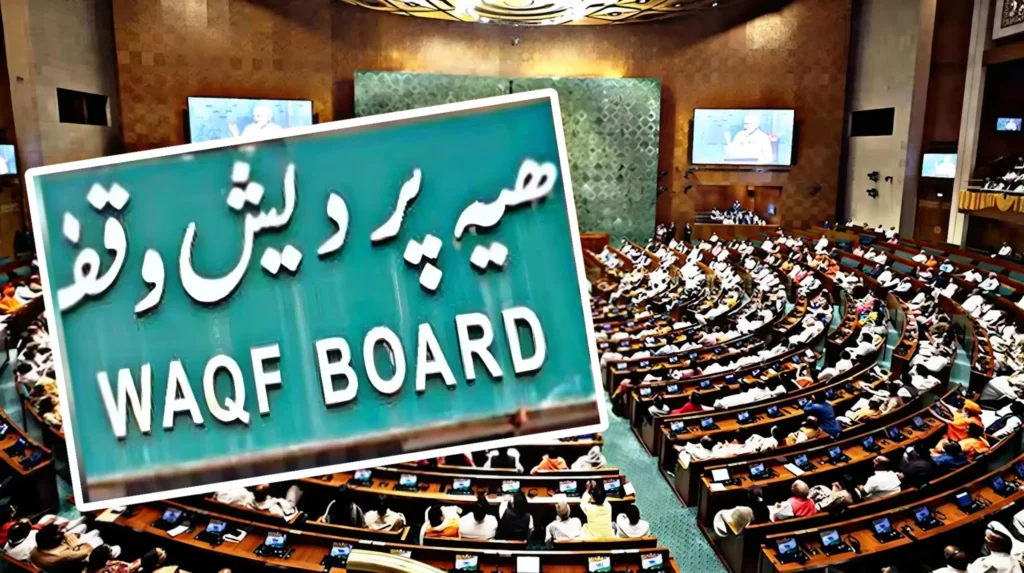The Waqf Amendment Bill aims to improve the management and governance of Waqf properties in India. It addresses challenges under the existing Waqf Act of 1995 by focusing on transparency, efficiency, and oversight of Waqf institutions. Here’s an overview of the bill, its features, and its expected impacts.
Overview of the Waqf Amendment Bill

Purpose: The bill seeks to amend the Waqf Act of 1995, which regulates the administration of Waqf properties—assets dedicated to religious and charitable causes in Islam. It aims to reform how these properties are managed to ensure better governance and accountability.
Key Goals:
- Strengthening Management: Improve the administration of Waqf properties by streamlining processes and introducing robust oversight mechanisms.
- Promoting Transparency: Increase openness in the handling of Waqf assets to prevent mismanagement and corruption.
- Improving Governance: Reform Waqf institutions to operate more efficiently and effectively.
Major Provisions of the Waqf Amendment Bill
- Creation of a Central Waqf Council: The bill proposes establishing a Central Waqf Council to supervise and coordinate Waqf property administration nationwide. This body will set standards and ensure adherence to the provisions of the Waqf Act.
- Development of a National Waqf Database: A significant feature of the bill is the creation of a National Waqf Database. This comprehensive database will record detailed information on all Waqf properties, including their management, use, and revenue, aiming to improve transparency and data accessibility.
- Reforms for State Waqf Boards: The bill suggests reforms to the structure and functioning of State Waqf Boards, focusing on enhancing their efficiency and capability to manage Waqf properties effectively.
- Enhanced Audit and Accountability Measures: The bill introduces stricter audit requirements and accountability measures for Waqf institutions. Regular audits will be mandated to ensure that Waqf properties are managed according to legal and ethical standards.
- Specialized Dispute Resolution Mechanisms: To address conflicts related to Waqf properties, the amendment proposes the establishment of specialized tribunals. These tribunals will handle disputes more efficiently and ensure fair resolutions.
Impact of the Waqf Amendment Bill
- Improved Property Management: The bill’s provisions for enhanced oversight and a national database are expected to lead to better management of Waqf properties, ensuring they are utilized effectively for their intended religious and charitable purposes.
- Increased Transparency: With a national database and regular audits, the bill aims to promote transparency, reducing opportunities for mismanagement and corruption within Waqf institutions.
- Strengthened Governance: Reforming the Waqf Boards and establishing a Central Waqf Council will contribute to better governance, ensuring Waqf institutions operate more efficiently and in compliance with legal standards.
- Quicker Dispute Resolution: Specialized tribunals for resolving disputes will facilitate faster and fairer resolution of conflicts related to Waqf properties, improving the overall efficiency of the dispute resolution process.
- Enhanced Community Benefits: Improved management and transparency are expected to lead to more effective use of Waqf properties for community welfare and development, benefiting the intended recipients.
The Waqf Amendment Bill marks a significant step toward modernizing the administration of Waqf properties in India. By focusing on governance, transparency, and efficiency, the bill aims to address existing challenges and ensure Waqf assets are managed effectively for religious and charitable purposes. These reforms are anticipated to bring positive changes in the management of Waqf institutions and the utilization of Waqf properties.


21 comments
Hey! Do you know if they make any plugins to help with
SEO? I’m trying to get my site to rank for some targeted keywords but I’m not seeing
very good success. If you know of any please share.
Thanks! You can read similar blog here: Wool product
Hey there! Do you know if they make any plugins to help with Search Engine
Optimization? I’m trying to get my website to rank for some targeted
keywords but I’m not seeing very good success. If you know of any please share.
Thanks! I saw similar art here: Wool product
Популярные стратегии ставок в онлайн-казино Вавада помогут вам грамотно подойти к игре и увеличить свои шансы на успех.
Ознакомьтесь с популярными стратегиями ставок в онлайн-казино Вавада, чтобы улучшить свои навыки и минимизировать риски.
Изучение популярных стратегий ставок в онлайн-казино Вавада станет первым шагом на пути к уверенным победам.
Применяя популярные стратегии ставок в онлайн-казино Вавада, вы сможете лучше контролировать процесс игры и свой банкролл.
Популярные стратегии ставок в онлайн-казино Вавада включают Мартингейл, Парлай и другие тактики для успешной игры.
https://telegra.ph/Populyarnye-strategii-stavok-v-onlajn-kazino-Vavada-01-15
Your article helped me a lot, is there any more related content? Thanks!
Your article helped me a lot, is there any more related content? Thanks!
[url=https://x.com/RauheShemi20597/status/1908418523719696728]Windows Activation Vmware[/url]
[url=https://telegra.ph/Windows-10-Windows-11-activation-is-forever-free-04-04]Windows 10 Activation Txt Cmd[/url]
[url=https://x.com/RauheShemi20597/status/1908418523719696728]My Windows Activation Key Is Not Working[/url]
[url=https://telegra.ph/Windows-10-Windows-11-activation-is-forever-free-04-04]Kms Windows Activation Command[/url]
[url=https://x.com/RauheShemi20597/status/1908418523719696728]Windows Activation Key Gratis[/url]
Windows Activation
Absolutely written content material, thanks for information .
[url=https://kuban.video]кубань доклад[/url]
[url=https://kuban.video]видео песен атамани[/url]
[url=https://kuban.video]видео тимашевска краснодарский край[/url]
[url=https://kuban.video]северская краснодарский край видео[/url]
[url=https://kuban.video]кубань доклад[/url]
вк видео переселение казаков на кубань, россия кубань, вести кубань видео, фулл hd видео, краснодарский край новости видео
kuban.video
[url=https://desktop.bonus-usdt-wechat.com/]картинка wechat[/url]
[url=https://desktop.bonus-usdt-wechat.com/]wechat РЅР° РєРѕРјРї[/url]
[url=https://desktop.bonus-usdt-wechat.com/]картинка wechat[/url]
[url=https://desktop.bonus-usdt-wechat.com/]wechat desktop dark mode[/url]
WeChat
I don’t think the title of your article matches the content lol. Just kidding, mainly because I had some doubts after reading the article.
Эта статья сочетает в себе как полезные, так и интересные сведения, которые обогатят ваше понимание насущных тем. Мы предлагаем практические советы и рекомендации, которые легко внедрить в повседневную жизнь. Узнайте, как улучшить свои навыки и обогатить свой опыт с помощью простых, но эффективных решений.
Получить дополнительную информацию – https://nakroklinikatest.ru/
I don’t think the title of your article matches the content lol. Just kidding, mainly because I had some doubts after reading the article.
Can you be more specific about the content of your article? After reading it, I still have some doubts. Hope you can help me.
Can you be more specific about the content of your article? After reading it, I still have some doubts. Hope you can help me.
Thanks so much for giving everyone remarkably nice possiblity to read from this website. It’s usually so terrific and also packed with fun for me and my office mates to search your site at a minimum three times in 7 days to find out the fresh guides you have. And definitely, we are actually motivated with all the awesome pointers you give. Some 4 ideas in this post are absolutely the most efficient we have all had.
rosetemplates Creative solutions with inspiring energy keep attracting audiences every day.
I’ve recently started a web site, the information you offer on this website has helped me greatly. Thanks for all of your time & work. “Money is power, freedom, a cushion, the root of al evil, the sum of all blessings.” by Carl Sandburg.
Thank you for another great post. Where else could anybody get that type of info in such a perfect way of writing? I’ve a presentation next week, and I am on the look for such information.
I consider something truly interesting about your blog so I saved to bookmarks.
Lovely just what I was searching for.Thanks to the author for taking his clock time on this one.
You made some nice points there. I looked on the internet for the issue and found most guys will consent with your blog.